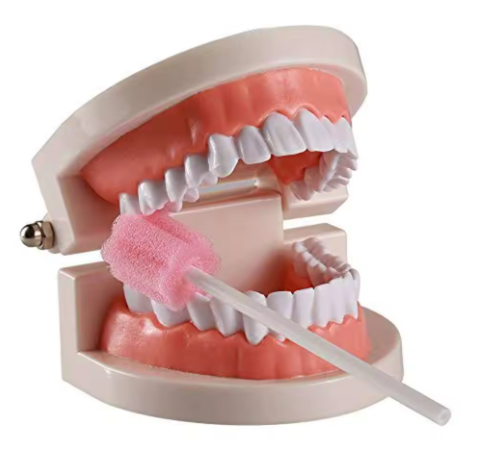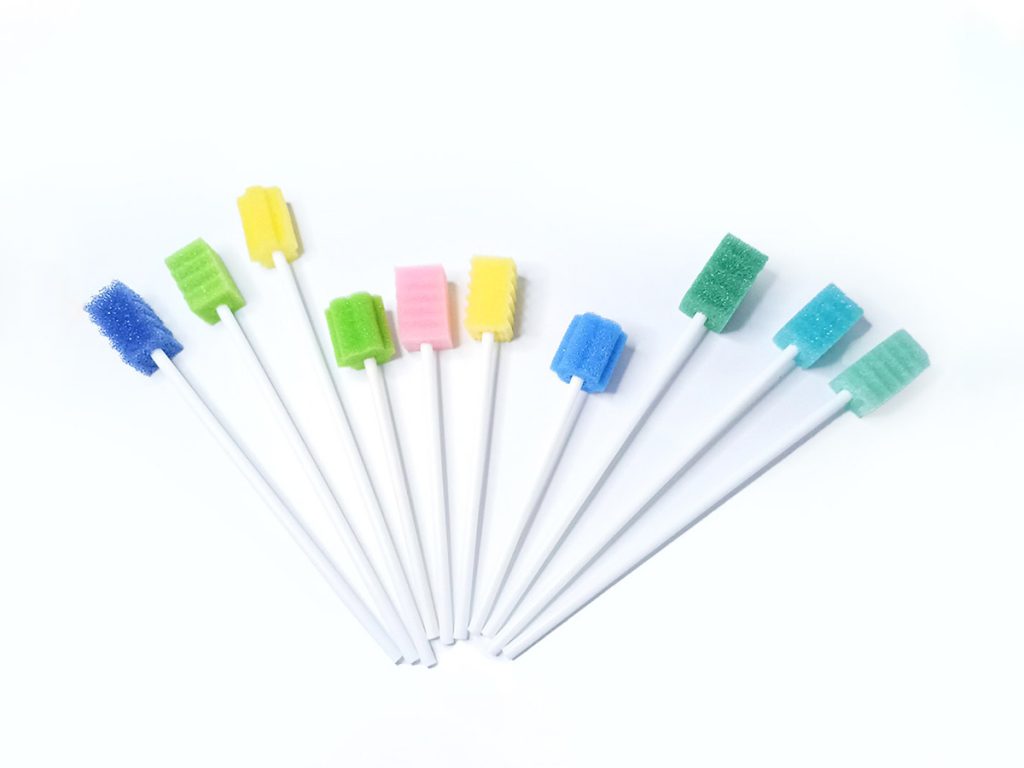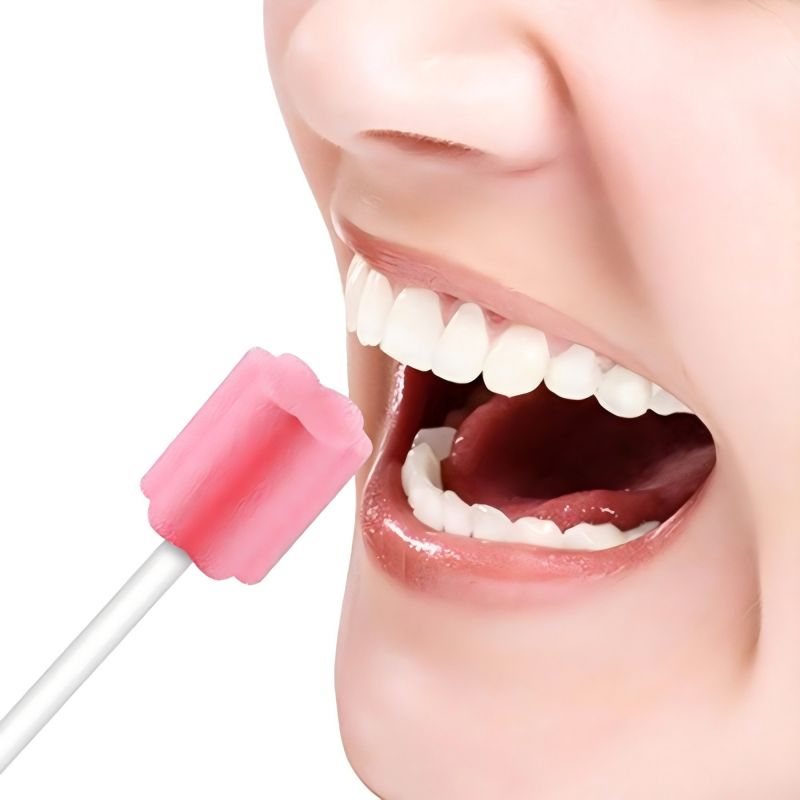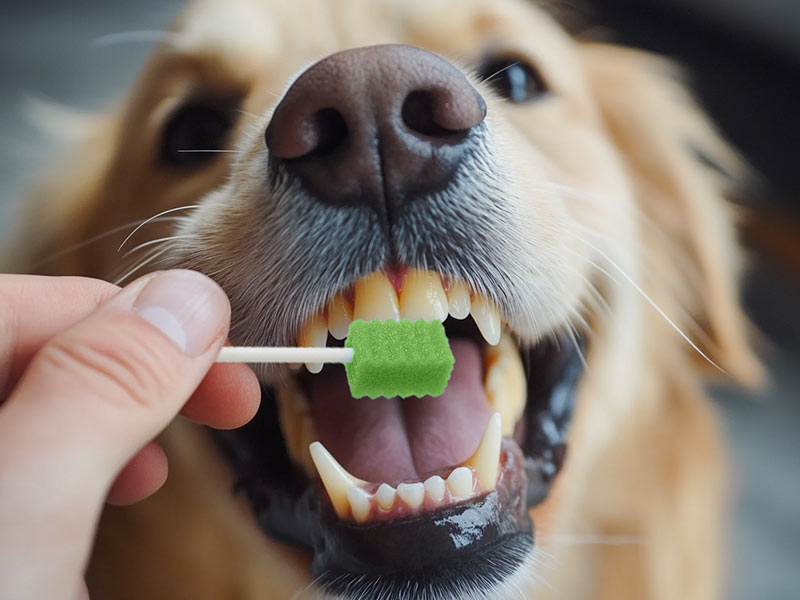When the mouth doesn’t produce enough saliva, it can cause dry mouth, also known as xerostomia, which can cause discomfort, make swallowing difficult, and raise the risk of dental issues and oral infections. It can be caused by aging, medications, health conditions, or dehydration. One common solution is using oral swabs, which provide a simple, effective, and non-invasive way to manage dry mouth symptoms. The definition of oral swabs, their operation, and their use in treating dry mouth will all be covered in this article.
Understanding Dry Mouth (Xerostomia)
Saliva is essential for maintaining oral health. It helps with digestion, protects the teeth from decay, neutralizes acids, and prevents infections by washing away food particles and bacteria. When the body fails to produce enough saliva, it leads to dry mouth, which can cause a variety of symptoms, including:
- Dryness in the mouth and throat: A sticky or parched feeling that doesn’t go away even with drinking liquids.
- Difficulty swallowing and speaking: Insufficient saliva makes it harder to swallow food and speak clearly.
- Bad breath: A dry mouth can contribute to foul-smelling breath due to the growth of bacteria in the mouth.
- Sore or cracked lips: A dry mouth often leads to irritation or cracks at the corners of the mouth.
- Increased risk of cavities and gum disease: People with dry mouth are more prone to gum disease and tooth decay because they don’t have enough saliva to wipe away food particles and bacteria.
- Food tasting difficulties: The absence of saliva can affect taste perception, which reduces the enjoyment of food.
Dry mouth is a common issue, particularly among older adults, and it can be exacerbated by various medications, such as antihistamines, antidepressants, and blood pressure drugs. Additionally, lifestyle factors like smoking and dehydration can contribute to the condition.

The Role of Oral Swabs in Managing Dry Mouth
Oral swabs, also known as mouth swabs or sponge swabs, are disposable tools that help clean the mouth and provide moisture. These swabs are designed to address dry mouth by moisturizing the oral cavity and providing relief from discomfort. They are particularly useful for individuals who cannot produce sufficient saliva on their own or those who have difficulty drinking enough fluids to stay hydrated.
Oral swabs for dry mouth are typically made from soft, absorbent materials like foam or sponge, attached to a plastic or wooden stick. Some swabs are pre-moistened with a special solution, while others are used with water, saline, or mouthwash. These swabs can be used to gently cleanse the mouth, freshen breath, and deliver moisturizing or antiseptic solutions directly to the gums and oral tissues.
Benefits of Using Oral Swabs for Dry Mouth
Immediate Relief from Dryness: Oral swabs offer instant moisture, helping to soothe the dry, uncomfortable sensation in the mouth. This can be especially beneficial when traditional methods, like drinking fluids or using saliva substitutes, are not sufficient.
Simple to Use: No specific skills or equipment are needed to use oral swabs. They are easy to handle for people who have limited movement or who have difficulty using a toothbrush. Caregivers can also use them to assist patients who are bedridden or have cognitive impairments.
Gentle on Sensitive Oral Tissues: Individuals with dry mouth often have sensitive gums and mucous membranes. The soft, non-abrasive nature of oral swabs makes them a gentle alternative to traditional toothbrushes, which can cause irritation when the mouth is dry.
Promotes Oral Health: Swabbing the mouth with moisturizing solutions or mouthwashes helps to reduce the risk of oral infections, cavities, and gum disease, all of which are more likely to occur when the mouth is dry. Some swabs contain fluoride, which helps protect teeth from decay, or antiseptic solutions that reduce harmful bacteria in the mouth.
Convenient and Portable: For individuals who are constantly on the go, oral swabs are a great choice because they are small, disposable, and lightweight. They can be used at any time, whether at home, in the hospital, or while traveling, to provide relief from dry mouth symptoms.
Reduces Bad Breath: A dry mouth is often the cause of halitosis, another term for bad breath. By moistening the mouth and neutralizing acids, oral swabs can help reduce the buildup of bacteria and improve breath freshness.
Helps with Eating and Speaking: For people with severe dry mouth, even basic functions like eating and speaking can become challenging. Oral swabs help to temporarily relieve dryness, making these activities more comfortable and enjoyable.

Types of Oral Swabs for Dry Mouth
There are several different types of oral swabs available, each designed to meet the specific needs of individuals with dry mouth:
Moisture-Infused Swabs: These swabs are pre-moistened with a moisturizing solution that helps hydrate the mouth and alleviate dryness. Some may contain a combination of saline, mouthwash, or other moisturizing agents designed to mimic the natural lubricating properties of saliva.
Fluoride-Infused Swabs: For individuals who need extra protection against tooth decay, some oral swabs come with fluoride. Fluoride helps to prevent cavities and improve tooth enamel, which is particularly important for people who have dry mouth because the absence of saliva can make dental issues more likely.
Antiseptic Swabs: Some swabs are impregnated with antiseptic or antimicrobial agents, such as chlorhexidine, to help kill harmful bacteria in the mouth. These can be useful for individuals with dry mouth who are at an increased risk of oral infections or gum disease.
Swabs containing xylitol: Xylitol is a sugar substitute that has been shown to promote salivation. Oral swabs that contain xylitol can be especially helpful for people with dry mouth caused by medication or certain medical conditions.
Swabs with Aloe Vera: Aloe vera is known for its soothing properties and is sometimes added to oral swabs for its ability to calm and heal irritated tissues in the mouth. These swabs can be particularly beneficial for individuals who experience mouth sores or discomfort from dry mouth.
How to Use Oral Swabs for Dry Mouth
Using oral swabs is easy and involves just a few simple steps:
- Choose the Right Swab: Depending on the individual’s needs, choose an oral swab that is either pre-moistened with a moisturizing solution, mouthwash, or an antiseptic. If no pre-moistened swab is available, you can dip a dry swab into a solution of saline or water.
- Positioning: For individuals with limited mobility or cognitive impairments, it may be necessary to assist them while using the swab. Position them comfortably in a sitting or reclining position to ensure access to all areas of the mouth.
- Gently Swab the Mouth: Gently rub the swab against the gums, teeth, tongue, and the roof of the mouth. Cover every surface, paying particular attention to the places where the dryness is most obvious. You can also use the swab to help clean the inside of the cheeks and the back of the throat.
- Swab Disposal: Make sure to properly dispose of the swab after usage. The majority of oral swabs are single-use, disposable products, so in order to preserve cleanliness, they should be thrown away after each usage.
Considerations When Using Oral Swabs for Dry Mouth
- Not a Permanent Solution: While oral swabs are an effective way to manage dry mouth, they provide only temporary relief. It’s critical to treat the underlying reason for dry mouth, which may include dehydration, medication, or a medical condition.
- Speak with a Healthcare Professional: For a more thorough treatment plan, it’s critical to speak with a healthcare professional if dry mouth continues or causes severe discomfort. A dentist or doctor can recommend other treatments, such as saliva substitutes or medications, to help manage the condition.
- Hydration: Along with using oral swabs, it’s crucial to drink plenty of water throughout the day. Hydration helps promote natural saliva production and can alleviate the symptoms of dry mouth.
Conclusion
Oral swabs for dry mouth provide a simple, effective solution for xerostomia by offering instant moisture, promoting oral health, and reducing infection risk. They are a convenient and gentle way to alleviate dry mouth symptoms at home, in healthcare settings, or while traveling.




